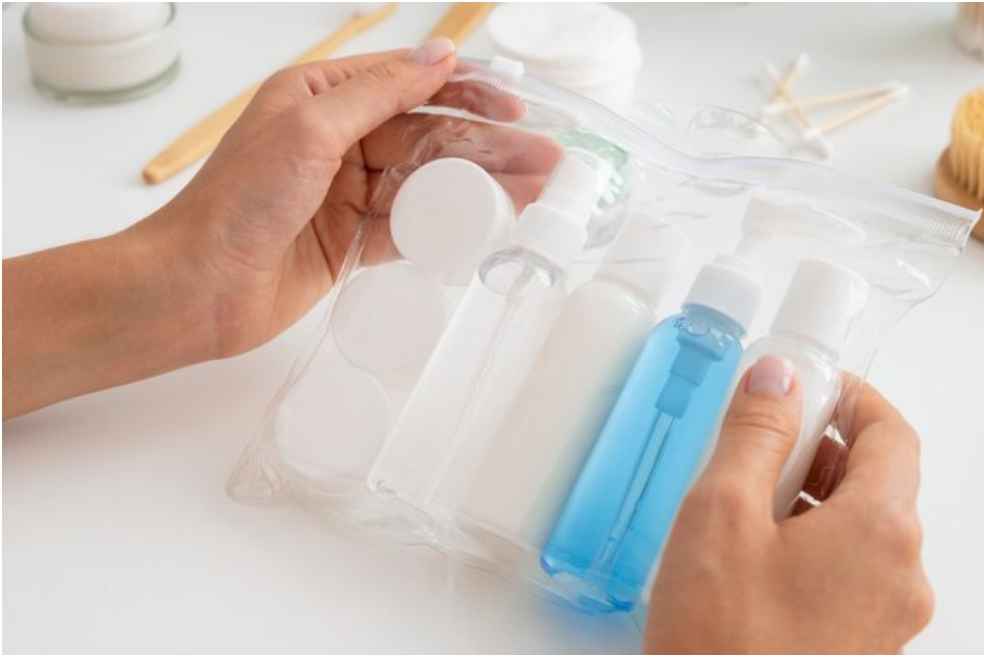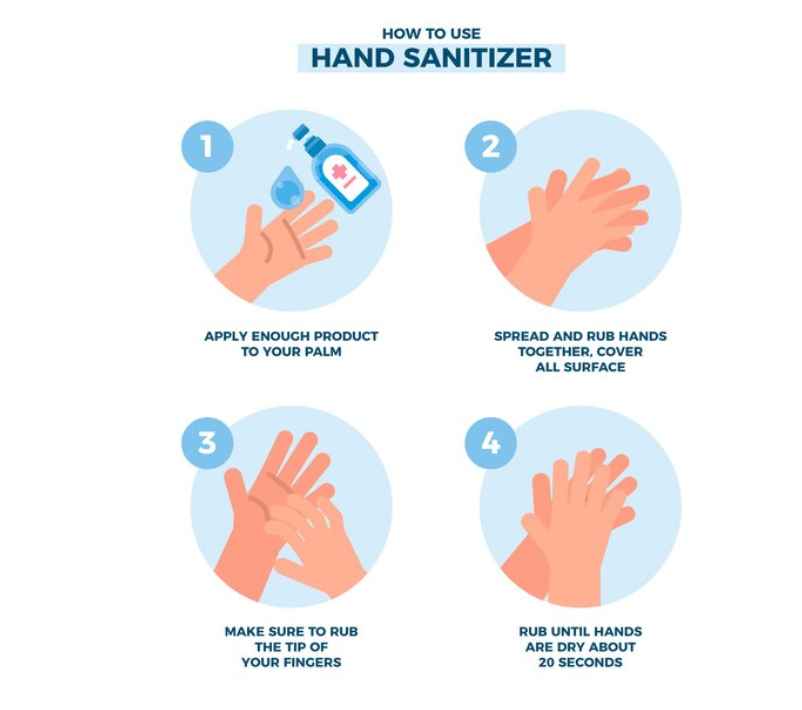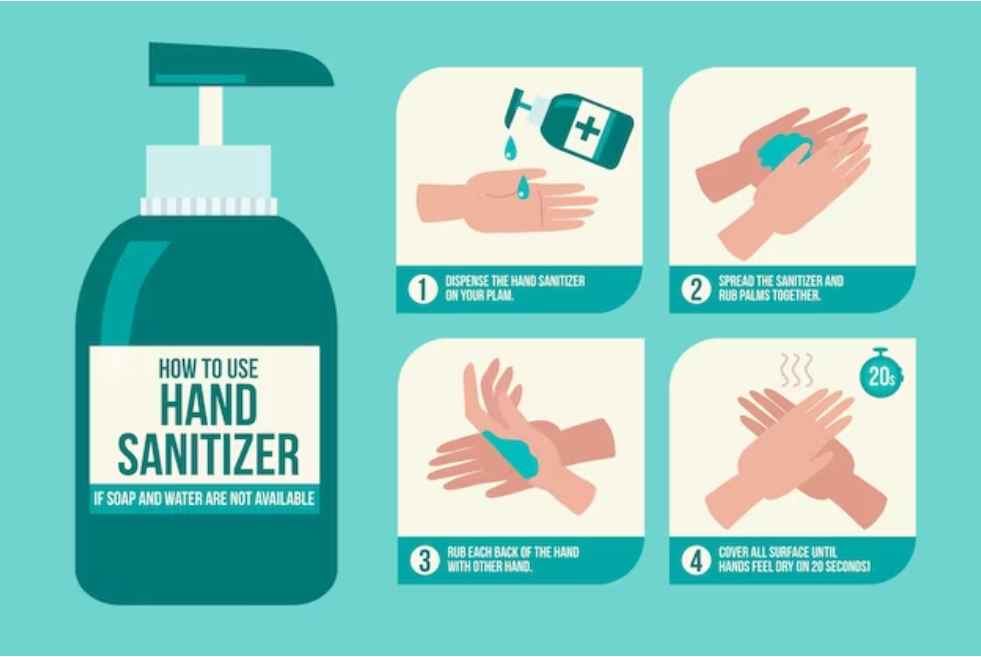Does Hand Sanitizer Expire date, typically ranging from 2 to 3 years? The alcohol content, which is the active ingredient, may evaporate over time, reducing its effectiveness.
Hand sanitizers have become a staple in maintaining personal hygiene, especially since the onset of global health concerns.
With their ability to kill germs and provide a quick cleansing solution when soap and water are not readily available, these gels, foams, and liquids are used by millions every day.
The effectiveness of hand sanitizers is largely due to their alcohol content, usually either ethanol or isopropanol, which can deteriorate over time.
As a result, manufacturers typically recommend using hand sanitizers within a specific timeframe after opening.
Consumers should note the expiration date to ensure they’re getting the maximum benefit from their sanitizer.
This date is often found on the label or the bottom of the container, guiding users to make informed decisions about their hand hygiene products.
The Science Of Hand Sanitizer Efficacy

Hand sanitizers are a popular shield against germs. They work fast and are easy to use. But do they lose their power over time?
To answer this, we dig into the science behind hand sanitizers. Let’s uncover how they fight germs and why their strength may wane as time passes.
Ingredients Breakdown Over Time
Like all products, hand sanitizers have active ingredients that can change. The main fighter in the mix is alcohol.
Over time, the components can separate or evaporate, reducing effectiveness. What starts as a robust germ killer, might not stay that way forever. Here’s a peek into what happens inside the sanitizer bottle:
- Alcohol evaporation can lower germ-killing abilities.
- Essential oils and fragrances may diminish in potency.
- Stabilizers and thickening agents might break down, altering the texture.
How Alcohol Concentration Changes
Alcohol is the hero in hand sanitizers. It’s the reason why germs say goodbye. But, over time, hand sanitizer bottles can lose alcohol.
A high alcohol content is good. When it drops, germ-fighting goes down too. The ideal percentage for alcohol-based sanitizers? At least 60%.
Go below that, and you have a less dependable germ buster. We need to monitor our hand sanitizers to stay safe and clean. Watch out for these signs:
- A change in smell may indicate a reduced alcohol level.
- A different feel on your hands might show ingredient breakdown.
- The expiry date is a guide to predict effectiveness.
Remember, a trusted sanitizer stays true to its label. Check the manufacturing date. Make sure your hand sanitizer stays sealed and stored properly to fight germs at its best.
Shelf-life Essentials
Mastering the shelf life of hand sanitizer ensures its effectiveness. Despite its high alcohol content, hand sanitizer does lose its germ-fighting abilities over time.
This section digs into the typical expiration timelines and the factors that can affect the longevity of hand sanitizer.

Typical Expiration Timelines
Most hand sanitizers have an expiration date stamped on the bottle. Generally, a hand sanitizer is most effective for:
- Two to three years from the date of manufacture.
- Alcohol-based sanitizers tend to have a longer shelf life.
After the expiration date, the active ingredient, usually alcohol, may evaporate below effective levels.
Factors Affecting Longevity
Several factors can shorten the expected shelf life of hand sanitizer:
- Exposure to sunlight: UV rays can degrade the alcohol content quickly.
- High temperatures: Heat can cause alcohol to evaporate, reducing potency.
- Improper storage: Hand sanitizer should be kept in a cool, dry place.
- Open containers: Evaporation can occur in poorly sealed bottles.
Identifying Expiration Indicators
Many wonder if hand sanitizer expires and how to tell. Knowing the shelf life of your hand sanitizer is important for effective germ-killing. Keep these signs in mind!
Label Dates And What They Mean
Every hand sanitizer bottle has a date stamp. This is not always an expiration date. Sometimes, it’s a manufacture date. Here’s what these dates indicate:
- Manufacture Date: The day it was made. Start counting shelf life from here.
- Expiration Date: The day its effectiveness may start to decline.
Typically, hand sanitizers remain effective for 2 to 3 years from the manufacture date. After this period, the alcohol content might drop, reducing its germ-killing power.
Physical Changes To Watch For
Physical changes can indicate your hand sanitizer may not be as effective. Here’s what to look out for:
| Indicator | What It Means |
|---|---|
| Change in Texture | Gel becomes watery or separates. |
| Color Shift | Color turns from clear to cloudy or yellow. |
| Smell Alteration | Starts to smell sour or different from when opened. |
Although a change may not mean it’s harmful, it could be less reliable. Consider replacing it to ensure maximum protection against germs.

Efficacy Beyond The Expiration Date
When it comes to hand sanitizers, we often wonder about their shelf life. Comprehending the ‘Efficacy Beyond the Expiration Date’ guides us on whether it’s safe to use that bottle we found at the back of the cupboard.
Let’s explore what happens to hand sanitizer after its expiration date and if it’s still effective.
What Research Says
Researchers have taken a close look at hand sanitizers to determine their longevity. The primary ingredient that makes these products work is alcohol.
Over time, alcohol content can diminish, especially if not stored properly. Studies indicate that hand sanitizers are most effective when they contain a certain percentage of alcohol.
- Effective sanitization typically requires 60% to 95% alcohol.
- Post-expiration, alcohol concentration can fall below this range.
- The germ-killing ability of sanitizer reduces as the alcohol content decreases.
Expiration dates serve as a benchmark for when the product may begin to degrade.
Risks Of Using Expired Products
Using an expired product might seem harmless, but it comes with certain risks.
| Risk | Explanation |
|---|---|
| Reduced Effectiveness | Less alcohol means less ability to kill germs. |
| Skin Irritation | Expired ingredients may cause skin reactions. |
| False Sense of Security | Believing your hands are clean when they are not. |
While there might not be immediate dangers, the primary concern is relying on an ineffective product to safeguard against germs. In times of heightened health awareness, this could lead to an increased risk of illness.
Proper Storage Tips
Mastering how to store hand sanitizer keeps it effective. The right storage extends the product’s life. Let’s find out key tips.
Extending Sanitizer Shelf-life
Like medicines, hand sanitizers have an expiration date. Heat, light, and air affect their efficiency. Simple steps can make sanitizers last longer.
- Keep it cool: Store hand sanitizer in a cool, dark place away from direct sunlight.
- Seal tightly: Ensure the cap is properly sealed to prevent the alcohol from evaporating.
- Avoid heat sources: Don’t leave it in the car or near heat to maintain the integrity of the ingredients.
Best Practices For Storage
Optimal storage practices prolong the sanitizer’s life and preserve its germ-killing properties. Follow these guidelines:
| Storage Tip | Benefit |
|---|---|
| Temperature control: | Prevents formula breakdown. |
| Avoid humidity: | Limits bacterial growth. |
| Upright position: | Reduces leakage, maintains efficacy. |
- Check expiration dates regularly.
- Use original containers to ensure a good seal.
- Discard any sanitizer that changes color or consistency.
Replacing Old Hand Sanitizer
Hand sanitizer is a staple in today’s world. But like many products, it doesn’t last forever. Knowing when to replace it ensures effectiveness.
Let’s look at the signs that it’s time for a new bottle and how to safely dispose of old sanitizer.

When To Buy New Sanitizer
First, check the expiration date on the bottle. Ingredients can break down over time. If your sanitizer has passed this date, it’s time for a new one.
Also, note changes in texture, color, or smell. These changes suggest it’s no longer effective.
Another tip: keep an eye on the alcohol content. Sanitizer should have at least 60% alcohol to be effective. Use a test strip if needed. Don’t forget, dry or leaky bottles are a sign to buy new.
Disposal Of Expired Products
Dispose of expired sanitizer properly. Don’t pour it down the drain. Alcohol can harm wildlife and water systems. Contact your local waste management. They often offer safe disposal options.
- Find a hazardous waste disposal event.
- Check if your local pharmacy has a take-back program.
To summarize, keep your sanitizer fresh and dispose of it right. Doing so protects your health and our world.
Frequently Asked Questions For Does Hand Sanitizer Expire
Does Hand Sanitizer Have An Expiration Date?
Yes, hand sanitizer does have an expiration date, typically around 2-3 years from the date of manufacture. After this period, the active ingredient, usually alcohol, may evaporate reducing its effectiveness.
How Can You Tell If Hand Sanitizer Is Expired?
Check the bottle for a printed expiration date or a manufacturing date to estimate its shelf life. Changes in texture, color, or a weak smell can also indicate that the hand sanitizer may be expired.
Is Expired Hand Sanitizer Still Effective?
Expired hand sanitizer may lose its efficacy because the alcohol concentration can drop below the recommended level. It’s best to replace it once it’s past the expiration date to ensure optimal germ-killing action.
Can Expired Hand Sanitizer Be Harmful?
Using expired hand sanitizer isn’t harmful in itself, but it may be less effective at killing germs. It doesn’t typically turn into harmful substances, but it should be replaced for maximum protection.
Conclusion
Grapsing the expiration of hand sanitizer is crucial for effective germ protection. Check labels for expiry dates to ensure maximum efficacy. Remember, an expired sanitizer loses potency, potentially reducing its ability to kill germs. Replace outdated products to maintain high hygiene standards and safeguard your health in any environment.
Stay informed, stay safe.

